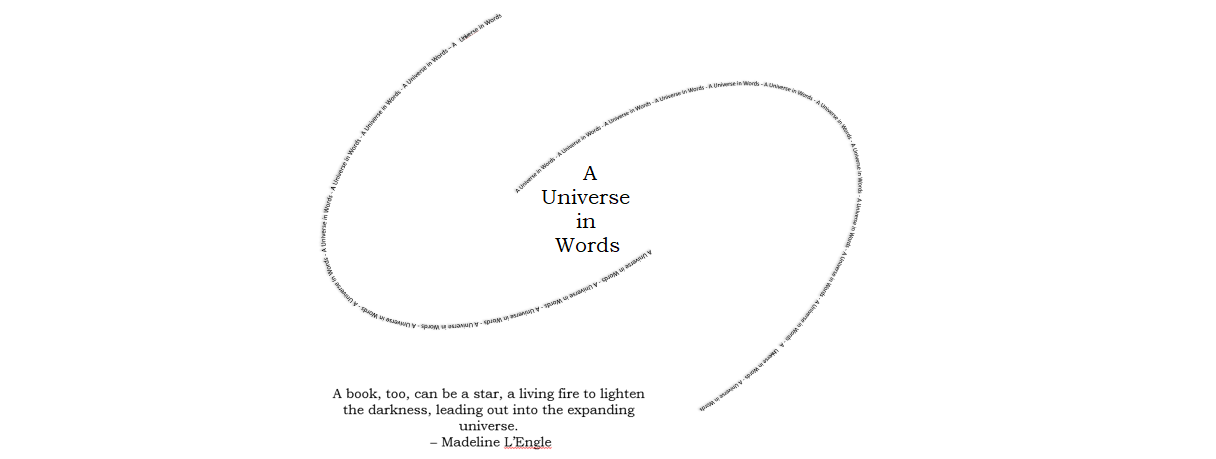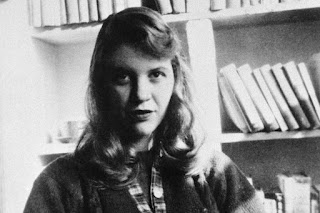Review: 'A World Gone Mad: The Diaries of Astrid Lindgren, 1939-45' by Astrid Lindgren, trans. by Sarah Death
 For a period during my childhood Pipp Longstockings, or, as I knew her, Pippi Langstrumpf, was who I wanted to be. Fearless and free, with an imagination to match her will, she was a wonder to behold. Astrid Lindgren also gifted me Michel aus Lönneberga, Mio, mein Mio, Wir Kinder aus Bullerbü and Ronja Räubertochter. It actually wasn't until writing this review that I realised just how much Astrid Lindgren influenced my childhood through her magical works. Especially Mio, mein Mio became a quick favourite, while the TV adaptation of Michel aus Lönneberga were a Christmas staple. So when I saw that this author of my childhood had kept a diary during the Second World War I knew I wanted to read it. Thanks to Pushkin Press and Netgalley for providing me with a copy of this book in exchange for an honest review.
For a period during my childhood Pipp Longstockings, or, as I knew her, Pippi Langstrumpf, was who I wanted to be. Fearless and free, with an imagination to match her will, she was a wonder to behold. Astrid Lindgren also gifted me Michel aus Lönneberga, Mio, mein Mio, Wir Kinder aus Bullerbü and Ronja Räubertochter. It actually wasn't until writing this review that I realised just how much Astrid Lindgren influenced my childhood through her magical works. Especially Mio, mein Mio became a quick favourite, while the TV adaptation of Michel aus Lönneberga were a Christmas staple. So when I saw that this author of my childhood had kept a diary during the Second World War I knew I wanted to read it. Thanks to Pushkin Press and Netgalley for providing me with a copy of this book in exchange for an honest review.Pub. Date: 27/10/2016
Publisher: Pushkin Press
God help our poor planet in the grip of this madness'
As one of the world's most famous children's writers, Astrid Lindgren championed the qualities of courage, hope, love and resistance; and her preoccupation with these qualities was already in evidence in the diaries she kept during the Second World War, long before she achieved her fame. Her diary, published now for the first time in English, provides a fascinating insight into a Europe poisoned by fascism, racism and violence, from the point of view of not only an employee of the Swedish Mail Censorship Office, but also a wife, mother and budding writer living in a formally neutral country.
In them, she asks questions which are as keenly and distressingly important today as they were in 1939-45: What is Good, what is Evil? What do we do, when jingoism and racism determine the thoughts and actions of humans? How can we, as individuals, take a stand against such malevolent forces?
Alongside the day's political events, Lindgren's intelligent and perspective diaries include charming and moving descriptions of her domestic life, as well as of her first writing attempts: it was during this terrible period that she composed Pippi Longstocking, one of the most famous, enduring and widely translated children's books of the twentieth century.I went into A World Gone Mad with the romantic images of Lindgren's books in my head, but these quickly evaporated as the reality of what she was writing about sank in. Lindgren wrote these diaries in the relative safety of neutral Sweden, where the threat of war was constantly present but where it never became an actuality. As such, there is a very strange quality to A World Gone Mad, especially if, like me, you're not very knowledgeable of Scandinavian WWII history. I constantly expected "the war" to break out, for something terrible to happen, and perhaps this is the perfect response because that is exactly what Lindgren must have felt for the 6 years that these diaries span. Consistently throughout the years she shares her disbelief that they're still living peacefully, her guilt over the feasts they have at Christmas and Easter while countless of people are starving across Europe. In a way it is very affecting because, living as I currently do, I feel a constant awareness of the ease of my life in comparison to many people in Africa, the Middle East and even Asia. As such, A World Gone Mad is a very relevant read.
A World Gone Mad is not an outsider's perspective, but Lindgren is conscious that she is able to write about her mad world from a certain remove and she takes her job of chronicling the events around her very seriously. From the beginning her entries are enriched by paper clippings, sadly not transcribed into the book itself (at least in my edition), and she does her best to capture each and every event. Her focus is predominantly on Scandinavia, but Lindgren uses her diary to ponder crucial questions. She writes with a sensibility about the suffering of Norway, the horror of carpet bombing in both England and Germany, and the seeming futility of hoping for an end to war. Her work at the Swedish Mail Censorship Office gave her an extra insight into the suffering of many and she frequently risked her job by describing and transcribing what she read in these letters. It adds an extra resonance to A World Gone Mad that I appreciated. Aside from writing about the war we also get an insight into Lindgren's personal life, her worries about her children ranging from the usual, grades and illnesses, to the worrying, her daughter fearing for her mother's safety.The downside of reading diaries is that one can become too fascinated by someone else's life, wanting to know more and despairing when the writer leaves something out. For example, a personal tragedy occurs in 1944 which Lindgren doesn't go into and had me furiously Googling for answers. I'm still in the dark about what she described as a 'landslide [that] has engulfed my existence and left me alone and shivering'.
Something I always enjoy about reading diaries, however, is that moment when you suddenly feel a very strong connection with someone you never thought you'd have something in common with. I had one of those moments during A World Gone Mad when Lindgren wrote the following:
'Recently I've been reading in Grimsberg's history of the world about ancient Rome and all the bloodbaths and atrocities, proscriptions and wars of conquest. Reading the papers and coming across the same geographical names, one simply despairs at how little humanity has learnt in the intervening centuries.'I had this exact same thought while reading Where the Iron Crosses Grow last week. Somehow we keep returning to the same places, the same events, slightly different each time and yet symptomatic of the same human weaknesses. But in the same vein, we also keep wondering, thinking and resisting in our own way and thereby connect to people of the past, as Lindgren and I did.
There is a reason Lindgren has been so central to so many childhoods and that was her brilliant writing. In A World Gone Mad we get to see another side of her, fastidious and detailed, but also full of emotions. She set out purposefully to write 'war diaries', clearly intent on capturing the events she knows will shape humanity, and she does so with fervour. While she recounts the events of weeks of war she both gives the reader a history lesson but also gives them a unique insight into WWII. Whether it is her hoping that Christmas in 1939 will be the last Christmas at war, or her precise noting down of everything they eat and gift each other throughout the years, the reader gets a real sense of what life in Sweden was like during the war. There is the tiredness of noting down another battle in a far off place, the desire to help neighbouring countries that are suffering and moments of joy in the midst of despair. In a way this diary makes the war feel more real than an in-depth history book ever could.
I give this book...

4 Universes!
A World Gone Mad gives an amazing insight into not just Lindgren's mind, but also into the Second World War. Lindgren approached these diaries with a serious dedication that becomes infectious. You'll become just as desirous for the war to end as Lindgren, but also as engrossed with the events as she is. I'd recommend this to those interested in WWII and war diaries in general.



Comments
Post a Comment